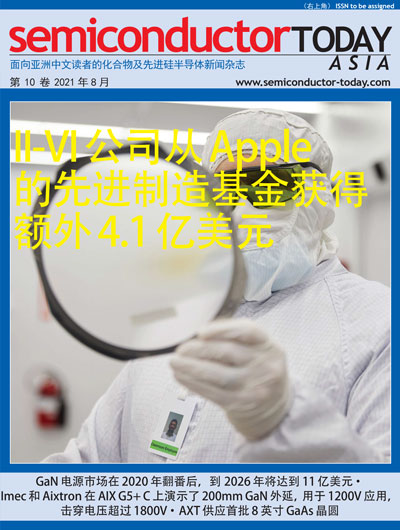- News
3 July 2013
UK creates first EPSRC National Centre of Excellence for Power Electronics
The UK’s capacity in power electronics has received an £18m boost from the UK’s Engineering and Physical Sciences Research Council (EPSRC) with the opening of the first EPSRC National Centre of Excellence for Power Electronics. As well as silicon-based devices such as insulated-gate bipolar transistors (IGBTs), power electronics can use devices based on silicon carbide (SiC), gallium nitride (GaN) and diamond.
“We have a leading power electronics industry in the UK, but we need to keep investing in research to ensure it remains globally competitive,” said David Willetts MP, Minister for Universities and Science, on the opening of the centre. “This National Centre will bring together our excellent universities and businesses to ensure industry has access to the latest science and technology, as well as helping to maintain a supply of skilled people.”
The investment in the new EPSRC Centre will be spread as a series of grants, each involving multiple universities. These consist of a central coordinating hub - led by professor Mark Johnson at the University of Nottingham, and involving the universities of Manchester, Newcastle, Greenwich, Bristol, Warwick, Nottingham and Imperial College London - and a series of four technical programs, as follows:
- Devices - led by professor Phil Mawby at the University of Warwick and involving the universities of Bristol, Cambridge, and Newcastle.
- Components - led by professor Philip Mellor at the University of Bristol and involving the universities of Greenwich, Nottingham, Manchester, Warwick, and Imperial College London.
- Convertors - led by professor Andrew Forsyth at the University of Manchester and involving the universities of Strathclyde, Nottingham, Bristol, and Imperial College London.
- Drives - led by professor Barrie Mecrow at the University of Newcastle and involving the universities of Manchester, Nottingham, Sheffield, and Bristol.
“This £18m investment in a six-year research initiative is part of EPSRC’s response to the Government’s 2011 BIS Strategy for Power Electronics in the UK,” says EPSRC’s chief executive, professor David Delpy. “We will invest an initial tranche of £12m with a further £6m being released subject to a future review of progress,” he adds. “Power Electronics was also a priority area in our recent call for new Centres for Doctoral Training.”
The opening of the new centre comes two months after the launch of the PowerelectronicsUK Forum, which is an industry-led collaborative network facilitated by NMI (the UK trade association for electronic systems, microelectronics and semiconductors) and backed by industry, academia and the government that aims to boost the number of people within the power electronics industry.
“The new EPSRC Centre for Power Electronics will be key to the future success of UK power electronics,” reckons Steve Burgin, chairman of PowerelectronicsUK and UK president of Alstom. “It will help to keep UK industry and academia at the forefront of next-generation power electronics technologies.”
PowerelectronicsUK’s Steering Group (with the role of ensuring the success of the PowerelectronicsUK initiative and driving external communications) is chaired by Stephen Burgin and vice-chaired by Dynex Semiconductor’s CEO Paul Taylor, assisted by a secretariat from NMI – Derek Boyd (CEO) and Alastair McGibbon (R&D Policy Director).
www.bis.gov.uk/power-electronics-strategy-for-success.pdf





